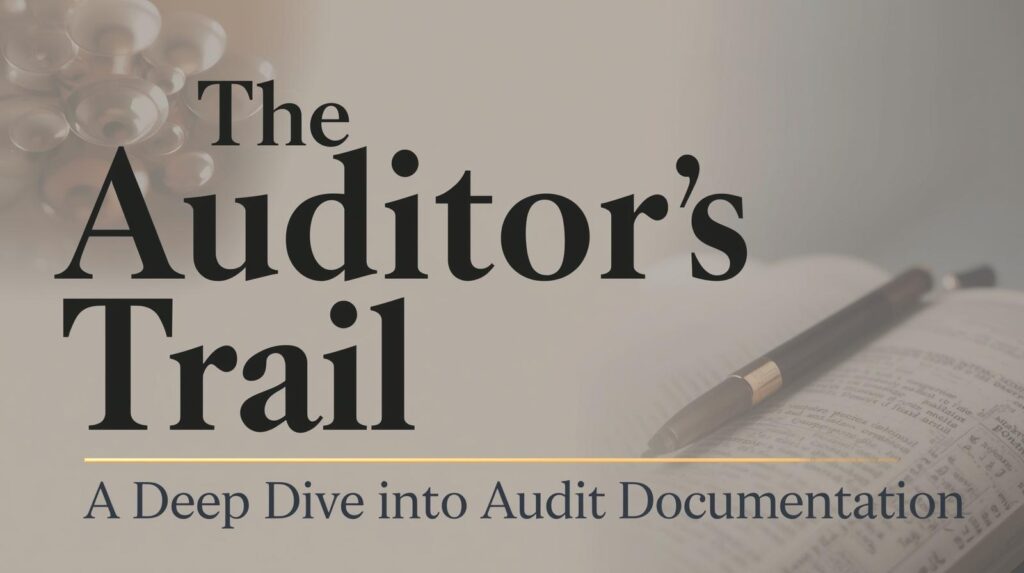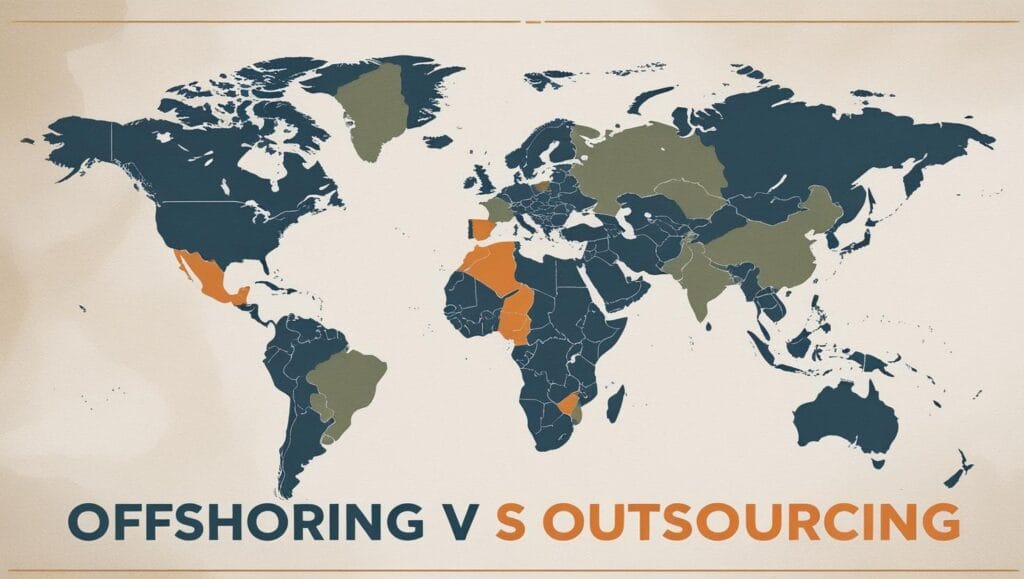11 Essential Qualities of a Good Bookkeeper to Hire in [2025]
Quick Summary: What Makes a Good Bookkeeper?
A good bookkeeper possesses a unique blend of technical skills and personal traits. The most crucial qualities include unwavering attention to detail, strong ethical principles, proficiency with accounting software, and excellent communication skills. They are not just number crunchers; they are organized, reliable partners dedicated to maintaining the financial health and integrity of your business.
Hiring a bookkeeper is one of the most critical decisions you’ll make for your business. Get it right, and you’ll have a clear, accurate picture of your financial health, empowering you to make smart decisions. Get it wrong, and you could face cash flow nightmares, compliance issues, and a mountain of stress. I’ve seen it happen firsthand—a small cafe owner I knew almost lost his business due to sloppy bookkeeping that hid a major cash drain.
So, what separates the financial guardians from the mere data-entry clerks? It’s more than just being good with numbers. It’s a specific set of qualities that ensures your company’s financial foundation is rock-solid. Let’s dive into the 11 essential qualities every great bookkeeper must have.
1. Meticulous Attention to Detail
This is non-negotiable and sits at the very top of the list. In bookkeeping, small mistakes can have huge consequences. A misplaced decimal point, a miscategorized expense, or a forgotten invoice can throw off financial statements, leading to incorrect tax filings and flawed business strategy. A great bookkeeper treats every single transaction with precision.
Think of a bookkeeper as the meticulous librarian of your company’s finances. Every book (transaction) must be in its exact right place on the shelf (the ledger) for the entire system to work.
How to spot this quality:
- During an interview, ask them to review a sample (and intentionally flawed) bank reconciliation.
- Check their resume and cover letter for typos or formatting errors. If they aren’t detailed there, they won’t be with your books.
2. Unquestionable Integrity and Ethics
Your bookkeeper will have access to your company’s most sensitive financial data. You must be able to trust them implicitly. This means they should be discreet, honest, and committed to ethical practices. They must understand the importance of confidentiality and be willing to handle your data with the utmost security.
Expert Insight: The Trust Factor
As a CPA, I always tell clients that skills can be taught, but character is ingrained. A bookkeeper with a strong moral compass will not only do the job correctly but will also flag potential issues and act in your business’s best interest, even when no one is watching. Always run a background check and call their references.
3. Proficiency with Accounting Software
Manual ledgers are a thing of the past. A modern bookkeeper must be highly proficient in at least one major accounting software platform, such as QuickBooks Online, Xero, or Wave. Their expertise should go beyond basic data entry; they should know how to run reports, troubleshoot integration issues, and leverage the software’s features to create efficiencies.
Key Software Skills:
- Setting up a chart of accounts correctly.
- Connecting and reconciling bank and credit card feeds.
- Managing accounts payable (A/P) and accounts receivable (A/R).
- Generating key financial reports like the Profit & Loss (P&L) and Balance Sheet.
4. Solid Understanding of Accounting Principles
A bookkeeper doesn’t need to be a Certified Public Accountant (CPA), but they absolutely must have a firm grasp of fundamental accounting principles. This includes understanding debits and credits, the difference between cash and accrual accounting, and how the three main financial statements (P&L, Balance Sheet, Cash Flow Statement) interact.
Without this foundational knowledge, they are simply inputting data without understanding its meaning or impact—a recipe for disaster.
5. Strong Organizational Skills
Bookkeeping involves juggling numerous tasks, deadlines, and documents. Payroll taxes are due on one date, sales tax on another, and vendor payments are a constant stream. A top-tier bookkeeper has a system. They are methodical, proactive, and can manage deadlines without constant reminders. Their digital (and physical) files are tidy, making it easy to find a specific invoice or receipt from two years ago.
Pro Tip: Test Their Organization
Ask a potential hire how they manage deadlines and organize client documents. A great answer will involve specific tools (like a calendar, project management app, or a structured folder system) and a clear process, not just a vague “I’m very organized.”
6. Effective Communication Skills
Your bookkeeper is the translator between your business activities and the financial numbers. They need to be able to communicate complex financial information clearly and concisely to you—someone who may not be a numbers person. They should be able to explain why profits are down or what a specific line item on the P&L means without using confusing jargon.
This includes both:
- Proactive communication: Alerting you to potential cash flow issues before they become critical.
- Responsive communication: Answering your questions in a timely and understandable manner.
7. Problem-Solving Abilities
Discrepancies happen. A bank feed might import duplicate transactions, a payment might be misapplied, or a vendor might double-bill. A great bookkeeper doesn’t just get stuck; they investigate. They have a detective-like mindset to trace the source of a problem and fix it efficiently. They see a puzzle to be solved, not a wall to run into.
8. Tech-Savviness Beyond the Basics
In 2025, being “tech-savvy” means more than just knowing QuickBooks. It means being comfortable with the broader digital ecosystem. Can they integrate your payment processor (like Stripe or Square) with your accounting software? Are they familiar with receipt-capture apps like Dext or Hubdoc? This ability to leverage technology saves time, reduces manual entry, and improves accuracy.
DIY Bookkeeping vs. Hiring a Professional
Pros of Hiring a Pro
- Saves you significant time
- Reduces costly errors
- Provides expert financial insights
- Ensures compliance and peace of mind
- Scales easily as your business grows
Cons of Hiring a Pro
- Direct monetary cost
- Requires finding and vetting a trustworthy person
- You may feel less connected to the daily numbers
9. A Commitment to Continuous Learning
Tax laws, software features, and business regulations change. A bookkeeper who relies on knowledge from five years ago is a liability. The best professionals are committed to staying current. They might be part of professional organizations, subscribe to industry newsletters, or take continuing education courses to keep their skills sharp.
10. Reliability and Dependability
This sounds obvious, but it’s crucial. Can you count on them to get the books closed on time each month? Will they file payroll taxes without fail? Dependability is the bedrock of a successful long-term relationship with your bookkeeper. This is where checking references becomes invaluable. Ask previous employers or clients about their consistency and reliability.
11. Being a Team Player
Finally, a bookkeeper doesn’t operate in a vacuum. They need to work effectively with you, your CPA, and potentially other members of your team. They should have a service-oriented attitude, seeing themselves as a key part of your business’s success, not just an outside vendor.
The best bookkeeper I ever hired transformed my business. She didn’t just record the past; she helped me see the future. Her clear reports and proactive alerts on spending trends were more valuable than any business consultant I’d paid for.
Finding someone with all these qualities might seem daunting, but investing the time to hire the right bookkeeper will pay dividends for years to come. They are more than just a cost center; they are a partner in your profitability and success.
Frequently Asked Questions
While several qualities are crucial, the most important is arguably attention to detail. A single misplaced decimal or a miscategorized transaction can have significant financial repercussions, making meticulous accuracy the bedrock of good bookkeeping.
Yes, many small business owners start by doing their own bookkeeping using software like QuickBooks or Xero. However, as the business grows, the complexity and time commitment increase. Hiring a professional bookkeeper often saves time, reduces errors, and provides valuable financial insights.
A bookkeeper is primarily focused on recording daily financial transactions—purchases, sales, receipts, and payments. An accountant takes a higher-level view, interpreting and analyzing the bookkeeper’s data to provide financial advice, prepare tax returns, and create financial statements and forecasts. The bookkeeper builds the financial house, and the accountant inspects it and helps you plan the next renovation.


